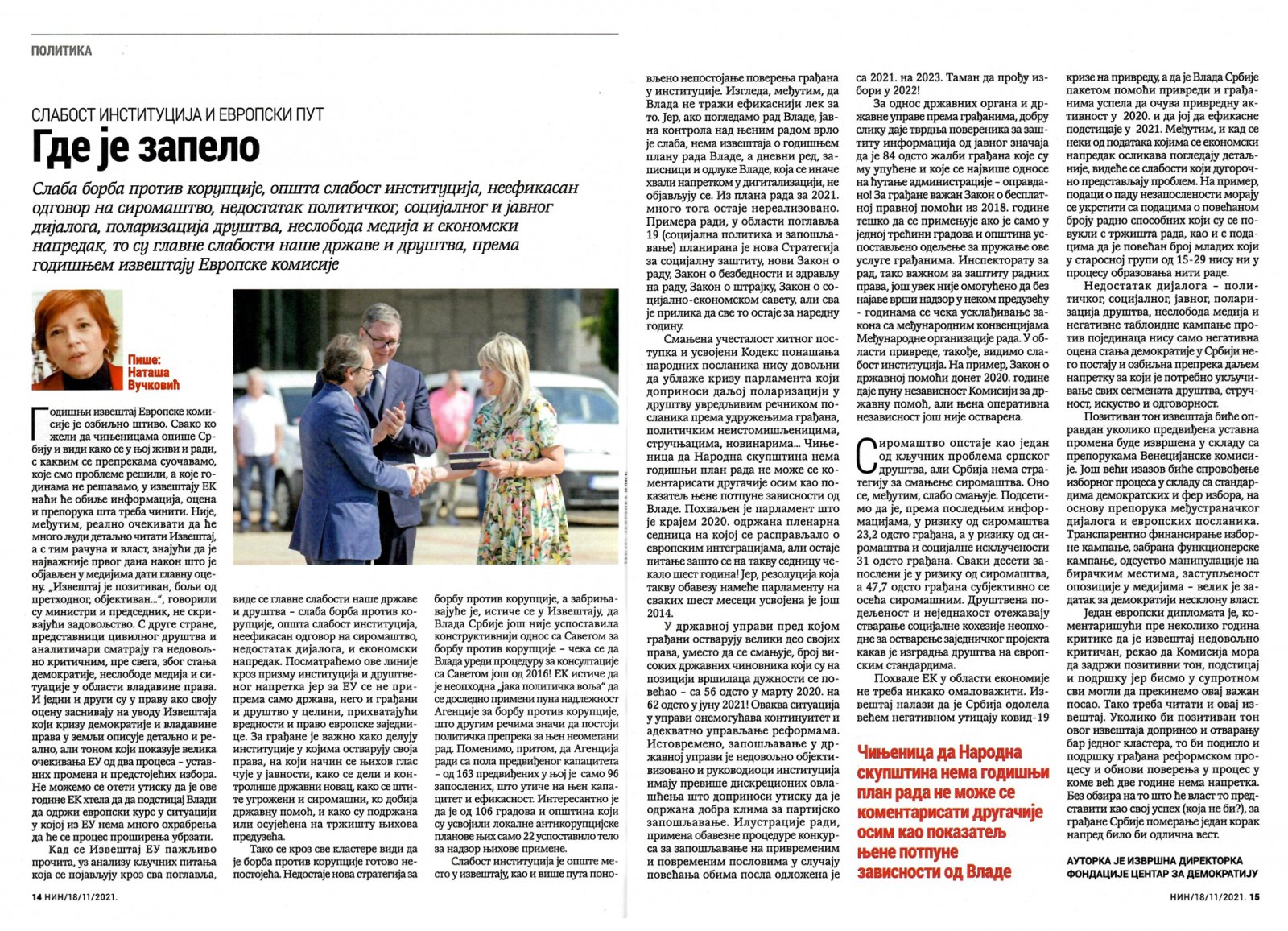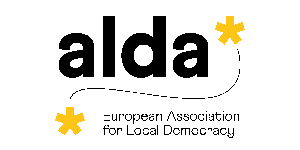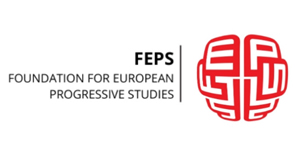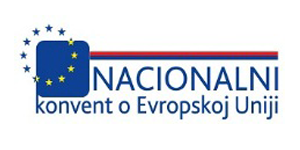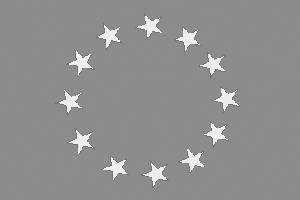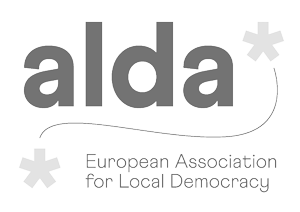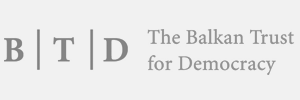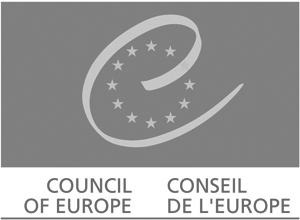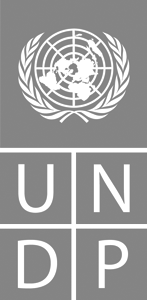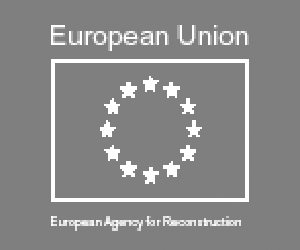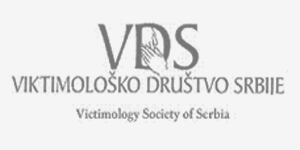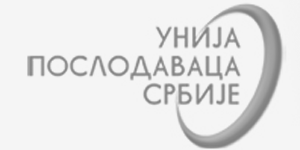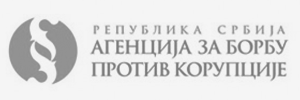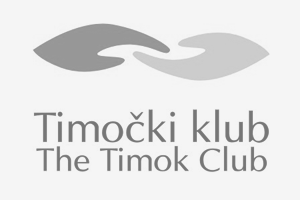Institutional Weakness and the Path to Europe
Nataša Vučković, author of the text, for NIN weekly newsmagazine
The annual report of the European Commission is a serious read. Anyone wanting to describe the factual situation in Serbia and gain insight into the way people live and work here, the obstacles we face, the types of problems we have resolved, and those we cannot unresolve years later, can find plenty of information, assessments and recommendations on what needs to be done in this Report. It is not, however, realistic to expect many to read the Report in detail, which is something the authorities are counting on, knowing that it was most important to give the main assessment the day after the Report was published in the media. “The Report is positive, better than the last, objective...”, said the ministers and the President, doing nothing to conceal their satisfaction. On the other hand, the representatives of civil societies and analysts consider it inadequately critical, primarily due to the democratic situation, lack of freedom of the press, and the state of affairs concerning rule of law. Both sides are right if they base their assessments on the Report’s introduction which describes in detail and realistically the crises concerning democracy and rule of law within the state, but also the tone of voice which indicates the great expectations of the EU relative to two processes - constitutional change and the coming elections. We cannot get away from the impression that this year the EC wanted to incentivise the Government to maintain the European course, in a situation in which the EU shows little reassurance the enlargement process will accelerate.
When the EU Report is read carefully, analysing key issues which appear in all chapters, we see the primary weaknesses present in our country and society. Combatting corruption is weak, our institutions are weak, our response to prevailing poverty is inefficient, furthermore, we lack both dialogue and economic growth. We will consider these lines through the prism of the institutions and societal development, as it is not only the state that is preparing to join the EU, the people and society as a whole are also involved in this process, in that they accept the values and laws of the European community. The manner in which the institutions operate is important to the public as this is the place where they exercise their rights, the way in which their voices are heard in public, the manner in which state funds are allocated and controlled, how vulnerable groups and the poor are protected, who is eligible for state aid and how their legal entities are either supported or crushed on the market.
It is evident throughout all clusters that the fight against corruption is nearly non-existent. A new anti-corruption strategy is lacking, and a worrying fact as highlighted in the Report is that the Government of Serbia has yet to establish constructive relations with the Anti-Corruption Council. We have been waiting since 2016 for the Government to regulate the consultation procedure with the Council! The EC emphasises the necessity of “strong political will” needed to consistently apply the full competence of the Anti-Corruption Agency. In other words, there is a political obstacle hindering its smooth operation. We mention here that the Agency is operating a half its envisaged capacity, of 163 envisaged employees, the Agency has merely 96, affecting its capacity and efficiency. Interestingly, of a total of 106 towns and municipalities which have adopted local anti-corruption plans, only 22 have established a supervisory body for their implementation.
The weakness of institutions is a focal point of the Report, and it repeatedly mentions the lack of trust of the population in the institutions. However, it seems as though the Government is disinterested in seeking a more efficient cure. If we examine the work of the Government, public control over its work is incredibly weak, reports covering the annual plans of the work of the Government, minutes taken or decisions rendered by the Government are not published, despite the Government boasting of improved digitalisation. In the 2021 work plan, much remains unimplemented. For instance, in Chapter 19 (Social Policy and Employment) a new Social Protection Strategy was planned, a new Employment Act, Occupational Health and Safety Law, Law on Strike, Law on Social Economic Council, but these are likely to be postponed for the coming year.
The reduced frequency of urgent procedures and the adopted Code of Conduct which applies to members of parliament is not enough to mitigate the parliamentary crisis which contributes to the further polarisation of society with the insulting manner in which it addresses civil societies, political dissidents, experts, journalists, etc. The fact that the National Assembly lacks an annual work plan cannot be commented on other than to say this is an indication of their total dependence on the Government. The Assembly was praised for holding a plenary session at the end of 2020, during which European assession was discussed, but the question remains - why have we waited six years for this type of session to be held! Given that a Resolution was adopted in 2014 which imposes this obligation on the parliament every six months.
Public administration, through which the public exercises a great many rights, has increased instead of decreasing. The number of high government officials employed as deputies has increased - from 56% in March to 62% in June 2021! A situation such as this in administration prevents continuity and adequate reform management. At the same time, employment in public administration is insufficiently objective and the heads of institutions have an excessive amount of discretionary authority which contributes to the impression that a favourable climate for party employment lingers. To illustrate, the application of a mandatory recruitment procedure pertaining to both temporary and occasional work, in the case of an increase in the volume of work, was postponed in 2021 to 2023. Just in time for the elections to pass in 2022!
The claim of the Commissioner for the Protection of Information of Public Importance that 84% of complaints filed by members of the public which relate mostly to the silence of the administration are justified, best illustrates the attitude of government authorities and public administration toward the people. The 2018 Law on Free Legal Aid, which is of importance to the public, is almost never applied, as only a third of the towns and municipalities have established a department which provides this service to its inhabitants. The Labour Inspectorate, which is of vital importance to the protection of labour rights, is still prohibited from supervising legal entities without notice. We have been waiting for years now for the law to be harmonised with the international conventions of the International Labour Organisation. The economic sphere also exhibits signs of having weak institutions. For example, the Law on State Aid adopted in 2020 provides for the complete independence of the Commission for State Aid Control; however, its operational independence has yet to be established.
Poverty prevails as one of the key issues in Serbian society, yet the country does not have a poverty reduction strategy. Poverty is on the slow decline. We must remember that according to the latest data, 23.2% of the population is at risk of poverty and 31% are at risk of both poverty and social exclusion. One in ten employees are at risk of poverty and 47.7% of the population is subjectively experiencing poverty. Societal divisions and inequality make it difficult to create the social cohesion necessary to complete a common project, such as creating a society built on European standards.
The praise of the EC relative to economy should in no way be underestimated. The findings of the Report say that Serbia was able to withstand most of the negative impact on its economy caused by Covid-19. Also, the Serbian government managed to preserve economic activity in 2020 by providing the economy and the public with aid packages and effective incentives in 2021. Nevertheless, when we take a closer look at economic growth data, weaknesses are evident that will prove to be problematic in the long term. For instance, data on the drop in unemployment need to be cross-referenced with data pertaining to the increased number of people of working age who have withdrawn from the labour market, and with data indicating the increased number of youths between the ages of 15-29 who are neither in education nor working.
Lack of dialogue - political, social, public, societal polarisation, lack of freedom of the press and negative tabloid campaigns attacking private individuals are not only a negative reflection of the state of democracy in Serbia, they are a serious obstacle to further progress that requires including all segments of society, expertise, experience and accountability.
The positive tone of the Report is justifiable provided that the envisaged constitutional change is carried out in line with the recommendations of the Venice Commission. It will be even more challenging to conduct the electoral process in line with the standards of democratic and fair elections, based on the recommendations of inter-party dialogue and the MEPs. Transparent financing of the election campaign, ban on ‘functionary campaigns’, absence of manipulation at polling stations, media representation of the opposition - is biting off more than they can chew for a government not inclined to democracy.
Relative to comments made a few years back that the Report was insufficiently critical, one European diplomat said that the Commission must maintain a positive tone, provide encouragement and support, otherwise we may as well give up on this important work. This is exactly how this year’s Report should be read. Should the positive tone of this Report contribute to opening at least one cluster, this would increase the public’s support of the reform process, restore confidence in the process itself, which has remained at a standstill over the past two years. Regardless of the fact that the Government would claim all the credit for success here (which government wouldn’t?), for the people of Serbia taking this step forward would be a major triumph.
Source: NIN
PUBLICATIONS
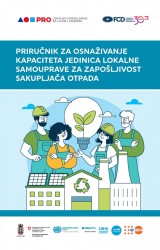 Manual for Strengthening the Capacities of Local Self-Government Units for the Employability of Waste Pickers
Manual for Strengthening the Capacities of Local Self-Government Units for the Employability of Waste Pickers
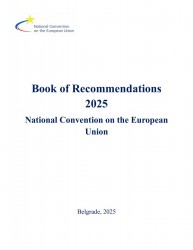 NCEU Book of Recommendations 2025
NCEU Book of Recommendations 2025
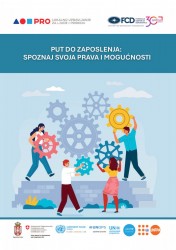 Manual “The Path to Employment: Get to Know Your Rights and Opportunities”
Manual “The Path to Employment: Get to Know Your Rights and Opportunities”
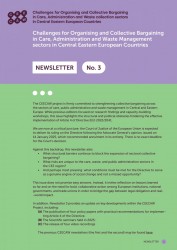 Challenges for Organising and Collective Bargaining in Care, Administration and Waste collection sectors in Central Eastern European Countries
Challenges for Organising and Collective Bargaining in Care, Administration and Waste collection sectors in Central Eastern European Countries
 Public Policy Proposals – Collective Bargaining (CEECAW)
Public Policy Proposals – Collective Bargaining (CEECAW)
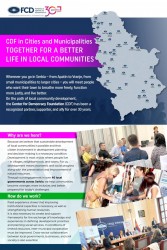 CDF in Cities and Municipalities: Together for a Better Life in Local Communities
CDF in Cities and Municipalities: Together for a Better Life in Local Communities
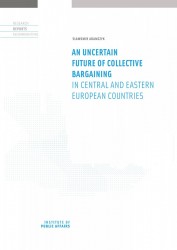 Comparative reports on collective bargaining - CEECAW
Comparative reports on collective bargaining - CEECAW
 POLITEIA – Regional School for Youth Participation 2025 (leaflet)
POLITEIA – Regional School for Youth Participation 2025 (leaflet)
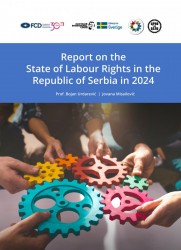 Report on the State of Labour Rights in the Republic of Serbia in 2024
Report on the State of Labour Rights in the Republic of Serbia in 2024
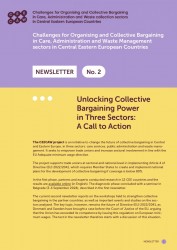 Unlocking Collective Bargaining Power in Three Sectors: A Call to Action
Unlocking Collective Bargaining Power in Three Sectors: A Call to Action
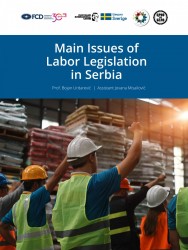 Main Issues of Labor Legislation in Serbia
Main Issues of Labor Legislation in Serbia
 New Monitoring Report by the “SDGs for All” Platform: Is the End Goal in Sight?
New Monitoring Report by the “SDGs for All” Platform: Is the End Goal in Sight?
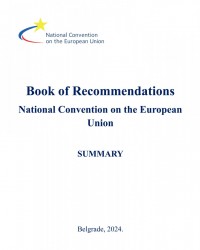 NCEU Book of Recommendations 2024 (Summary)
NCEU Book of Recommendations 2024 (Summary)
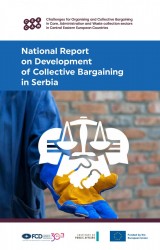 National reports on collective bargaining in Serbia - CEECAW
National reports on collective bargaining in Serbia - CEECAW
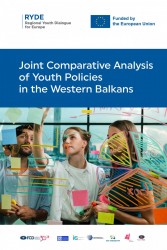 The Comparative Analysis of Youth Policies in the Western Balkans (WB)
The Comparative Analysis of Youth Policies in the Western Balkans (WB)
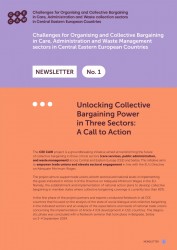 Unlocking Collective Bargaining Power in Three Sectors: A Call to Action
Unlocking Collective Bargaining Power in Three Sectors: A Call to Action
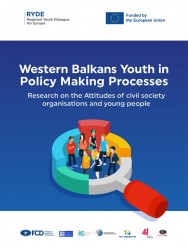 Western Balkans Youth in Policy Making Processes
Western Balkans Youth in Policy Making Processes
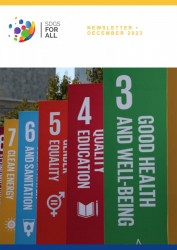 SDGs for All Platform newsletter (December 2023)
SDGs for All Platform newsletter (December 2023)


